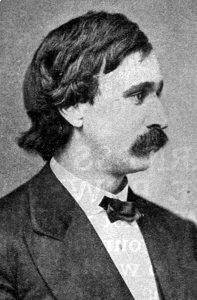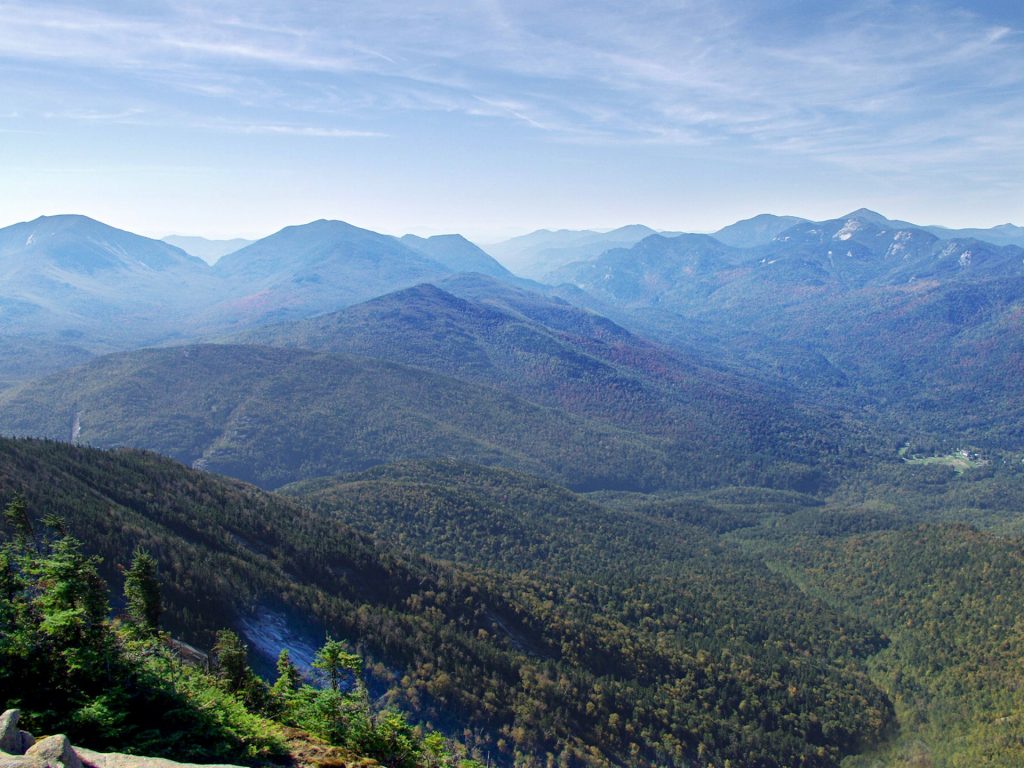“My wife says, ‘Camping’s a tradition in my family’. It was a tradition in everyone’s family, until we invented the House!” – Jim Gaffigan
When did people start roughing it in the wilderness for fun instead of out of necessity?
I have long been fascinated by this question. Our – documentary was intended to answer a small part of the answer of this question. I’ve researched this topic at the US Library of Congress with primary sources. It is fascinating. How did people do a 180 degree turn on an older lifestyle and consider it fun? Aren’t we too Civilized to Poop in the woods?
Here’s another piece of the answer: William Henry Harrison Murray
It’s like the 9th president of the United States and Comedian Bill Murray had a child who grew up to be a congregational minister who had a great dislike for “tramping” in the woods.
Now, let’s unpackaged that a bit! Ha ha
Little William was born during an election year. The very year that the future 9th president of the United States was running for the Presidential office (William Henry Harrison). However, it is safe to say that William Murray’s influence on the world has left a larger mark than the 30 day presidency of his namesake.
 William grew up to become a Congregational minister who, despite his parishioner’s early displeasure, enjoyed taking 1 – 2 month-long camping expeditions into the Adirondack mountains in New York. During these trips, he slowly developed writings based on his experiences and theories concerning the great outdoors.
William grew up to become a Congregational minister who, despite his parishioner’s early displeasure, enjoyed taking 1 – 2 month-long camping expeditions into the Adirondack mountains in New York. During these trips, he slowly developed writings based on his experiences and theories concerning the great outdoors.
This guy did it all. He made a bed out of pine bows, fished and hunted for just enough food to maintain life, developed and worked on projects to improve camping gear and costumes (clothing). In 1867, his humorous and exciting writing ended up running in a small publication that got big recognition for his work. These short essays were then compiled into a 1869 book entitled “Adventures in the Wilderness; or, Camp-life in the Adirondacks”.
The next year 20,000 of “Murray’s Fools” stormed the Adirondacks to camp. The previous year had seen a few hundred visitors and it was obvious that Murray was on to something with his camping.
I laugh as I read his work. Not only because of his dry humor that obviously glazes over some pretty awful experiences but also because his writing still evokes the same desires in me to get outside.
“I most earnestly recommend a month’s experience among the pines. The air which you there inhale is such as can be found only in high mountainous regions, pure, rarefied, and bracing.”
His writing sounds nearly heavenly.
“Many a night have I laid down upon my bed of balsam boughs and been lulled to sleep by the murmur of Avertsand (birds) and low sighing melody of the pines, while the air was laden with the mingled perfume of cedar, of balsam, and the water-lily”
SIGN ME UP! Sounds amazing. Yet, anyone who has actually camped on a bed made of boughs knows, it isn’t always that magical!
Still, people drove into the wilderness for his proclaimed physical and spiritual benefits. Admittedly, we was on to something as science is still proving today. It is known that time in nature corrects sleep patterns, reduces anxiety for some, can psychologically bring perspective on life. It also injects elements of adventure and the unknown into the routine of life.
Other elements that I like about his work is his suggested clothing. Essentially he suggested campers wear leather garments with gauntlet style gloves that are sewn onto the sleeves of leather tops to keep the gnats and mosquitos out. A clever solution but I have two reactions to this in this order:
- That sounds really hot to wear
- The mosquito population must have been nearly intolerable.
The city conditions of the 1800s were equally fraught with problems. Poor air quality due to dust and dried horse manure, tenement housing, poor working conditions, and more contributed to poor health for many people.
Murray describes a young man who was condemned to die by his doctors who was taken out into the mountains for a few months. At the end of his time there he returned stronger than ever because of the healing properties of the woods. Of course what he doesn’t mention is the harsh health conditions of living in a city in the 1800s.
There are other stories that he shares concerning “Tramping”. I didn’t even know that tramping was a technical term until reading this book! Apparently Tramping is to hike straight through terribly difficult terrain and plant life. He mentions brambles and thorn bushes that stretch for long distances that some sportsmen would tramp through to get to good fishing or hunting grounds. He, apparently, didn’t see the point in all of that pain and hassle in the application of camping.
So, why do we go out and poop in the woods? Didn’t we grow beyond that? Well, Murray seems to answer some of these questions through enticing language and beautiful descriptions of nature that draw such a contrast to the lives of many people of his time.
I’d also say that his descriptions still draw us because, although our lives are much healthier and cleaner, working in an office or cubicle is nearly too civilized.
Here’s my proof in a final quote from Murray:
“The air fresh with the aroma of the wilderness. The morning blowing its perfumed breezes into your face. The drip, drip of the odorous gum in the branches overhead, and the colors of russet, of orange, and of gold streaking the eastern sky.”
Murray was never really known as a great minister, although his congregation appreciated the publicity and his sermon illustrations taken straight from the natural world. He died known mostly as an author. Really as THE author to start the Camping movement in his part of the world.
